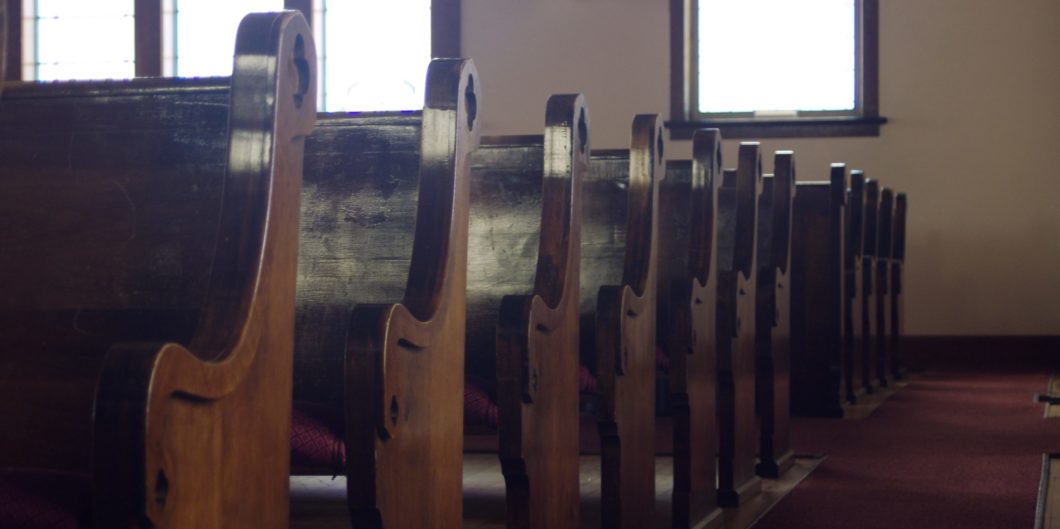Hazony's The Virtue of Nationalism helps build a realist conception of political order that goes beyond theory to understand history.
Reading Political Theory into Scripture
A common temptation when drawing on the Scriptures to inform one’s political theory is to read one’s political theory into the Scriptures rather than reading political theory out of the Scriptures. Conservatives are no more immune to this temptation than leftists. Yoram Hazony, for example, studiously ignores the universalistic religious vision in the Scriptures in making his biblical case for The Virtue of Nationalism. Yet it is difficult to surpass the smug nonchalance with which some of the folk at Sojourners read their preferred political theories into the Scriptures.
Take Randall Balmers’ recent post at Sojourners on “The Evangelical Critique of Capitalism.” Here the Church after Pentecost practiced “socialism . . . if not communism.” Jesus’s teaching on rich people and the eye of the needle is a socialist retort to the one percent. And 19th century Evangelicals such as Charles Finney taught that the “tenets of capitalism—selfishness, greed, ‘the desire to possess’—[run] counter to the mandates of the gospel and the words of Jesus to care for the ‘least of these.’”
Before getting to these, it’s worth noting that Balmers ignores the one story in the Bible in which the government ends up owning the means of production—real socialism. The story is that of Joseph and his actions as a leading government official in light of a pressing national emergency in Egypt. The problem is that the ultimate outcome of this event and Joseph’s actions do not unequivocally support the socialist cause.
Joseph’s divinely inspired wisdom in the story saves both Egypt and Israel from terrible famine. Yet in saving Egypt, Joseph ends up buying for Pharaoh all of the privately-owned livestock (Genesis 47.16-17), all of the privately-owned land but that owned by the priestly caste (Genesis 47.20, 22), and buys even the people themselves, making them Pharaoh’s slaves (Genesis 47.25).
On the one hand, Joseph’s actions save Egypt and Israel from the famine. On the other hand, the consequences of Joseph’s actions turn dark after Joseph dies and a “new King arose over Egypt, who did not know Joseph” (Exodus 1.8). Pharaoh’s economic power turns despotic. It is this ambiguity, I dare say, that deters left-wing evangelicals from appealing to the one clear example in the Scriptures in which the government ends up owning the means of production.
In contrast to Joseph’s socializing policies as leader of the Egyptian government, the actions of the Church immediately after its creation at Pentecost, cannot, contrary to Balmers, be styled as any form of real socialism, let alone communism.
The Scriptures make it expressly clear that there was no coercive element, even as a condition of membership, in the Church’s practice after Pentecost. The Church faced dire emergency conditions due to its very success at Pentecost. The small band of disciples immediately grew by 3,000 on that day alone (Acts 2.41), and grew by thousands more in the days to come (Acts 4.4).
Pentecost was a Jewish festival in which large numbers of the faithful returned to Jerusalem from different nations (Acts 2.9-11). With the conversion in response to Peter’s sermon, there existed just a single Christian church. These converts could not return to their home country and join, say, the Second Presbyterian Church of Ephesus. For many, their brief trip to Jerusalem became unanticipatedly longer. Many would not have come financially prepared for a longer stay in Jerusalem.
As a result of this pressing need, the disciples “had all things in common and began selling their property and possessions and were sharing them with all, as anyone one might have need” (Acts 2.44-45, cf., 4.34-35). This activity exemplifies the underlying ontological unity of the Church in Jesus Christ (Romans 12.5, Eph 4.25, Mark 10.29-30, etc.), a lesson that is often lost in modern churches in which the Church is conceived, even by Christians themselves, as little more than voluntary organizations, religious clubs for like-minded people.
So the practice of the church at Pentecost still holds today. But it held neither then nor now as an example of socialism. The Scriptures could hardly be clearer about that. Luke records the sad story of Ananias and Sapphira in Acts 5. This couple sold some of their property yet “kept back” some of what they sold while falsely representing to the apostles they were giving the full amount (Acts 5.8).
Peter’s rebuke to Ananias, however, rules out even the possibility that the Church’s practice models the coercive practice at the foundation of any truly socialist system: “While [the property] remained unsold, did it not remain your own? And after it was sold, was it not in your authority?”
To be sure, if the folks at Sojourners really want to offer this as socialism—where Americans may choose voluntarily to donate to a common pool to be shared with all—I dare say few non-socialists will object. That system of voluntary donations already exists. But if we’re talking about real political and economic socialism, the example of the Church at Pentecost utterly fails to meet the definition.
Balmers next suggests that Jesus commends socialism in his well-known statement that “it is easier for a camel to go through the eye of a needle, than for a rich man to enter the kingdom of God” (Matthew 19.24).
As with the Church’s practice as Pentecost, it is important when responding to Balmers’ tendentious reading of this passage, that we not throw the baby out with the bath water. To wit, the Scriptures repeatedly and frequently caution that wealthy people face unique and daunting temptations because of their wealth (Deuteronomy 8.12-13, Revelation 3.17-18, etc). Relatedly, in early recognition of rent seeking, the Scriptures also caution judges and government officials against being partial to the wealthy. Of note, although less frequently, the Scriptures also caution judges and government officials against being partial to poor people (Exodus 23.3, Leviticus 19.15).
That said, the problem with Balmers’ reading his policy preferences into this text, is that he misses the puzzle, and so misses how Jesus’s concluding comment in the exchange actually subverts the conclusion Balmers (and Sojourners) want to draw from the passage.
In response to Jesus’s comment about rich people, camels and needles, the disciples ask, “Then who can be saved?” This is an odd question to ask. On the surface, after all, Jesus’s own statement already answered the question. After all, a statement regarding the difficulty of salvation for rich people carries with it the implication that the great multitudes of people who aren’t rich can be more-easily saved.
So the disciples must have something more in mind that prompts their question that Jesus’s statement about rich people somehow implicates everyone’s salvation.
Here we need to go back to the Old Testament, to the very beginning of Israel. Jesus’s statement implicates everyone’s salvation for the disciples because Abram/Abraham, the first patriarch, was himself fabulously wealthy (Genesis 13.2, 24.35, etc.). The disciples’ universalistic question derives from this: If the faith’s founding patriarch, the one through whom God created his people, was saved only with great difficulty, then what hope can there be for the rest of us ordinary mortals, whether rich or poor?
The disciples’ question universalizes Jesus’s statement about the difficulty of salvation. Jesus actual answer, “with people this is impossible, but with God all things are possible” (Matthew 19.26) then subverts the Sojourners’ reading of his own words. This does not imply that wealthy people do not face heightened temptations relative to poor people. But the universalizing thrust of the disciples’ response, and Jesus’s equally universalizing answer, leaves no room for Balmers’ political reading of the passage.
Even granting Balmers’ tone-deaf reading of the passage, what would Jesus’s statement have to do with socialism? Balmers is so concerned with saving the souls of rich people that he would have the government expropriate their property to make them poor? (Or to take from the rich and give to the poor . . . to make the poor richer and so open them to the temptations of affluence?)
Finally, Balmers’ reading of 19th century Evangelical Charles Finney as a critic of capitalism seems to be as selective as his reading of the Scriptures. The evidence concerning Finney is much more ambiguous than Balmers suggests. Eugene McCarraher, for example, in his massive study, The Enchantments of Mammon: How Capitalism Became the Religion of Modernity (which I discuss here), writes that “The greatest circuit rider for Christian capitalism was Charles Finney, the star revivalist of the Second Great Awakening.” Finney is Balmers’ star witness that 19th century Evangelicals were critical of capitalism. In truth, Finney criticized some elements and implications of market capitalism, yet also recognized important virtues to and benefits of market capitalism. He did not regard it as an inherently evil system as Balmers suggests he did. Beyond Finney in particular, however, Balmer is wrong when suggesting that “selfishness, greed, [and] ‘the desire to possess’” are more intrinsic elements of life in market capitalism than they are in a pre-modern economy or in a socialist economy. These vices long predate the rise of modern market capitalism.
The very fact that biblical figures from Moses to Jesus inveigh against selfishness, greed, and covetousness itself underscores that these sins inhere in the human condition throughout time, and long precede the rise of modern capitalism. This is not to suggest that humans in market systems labor under these temptations any less than people in the distant past. But it does suggest that these are not unique vices of modern capitalism, at least if we listen to the Scriptures themselves rather than read our views into the Scriptures.



